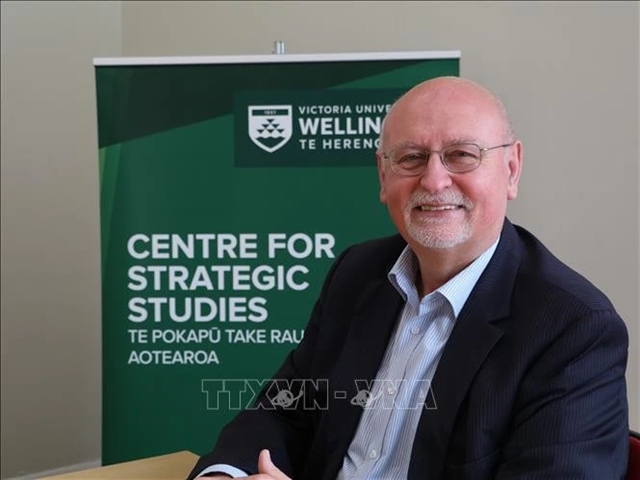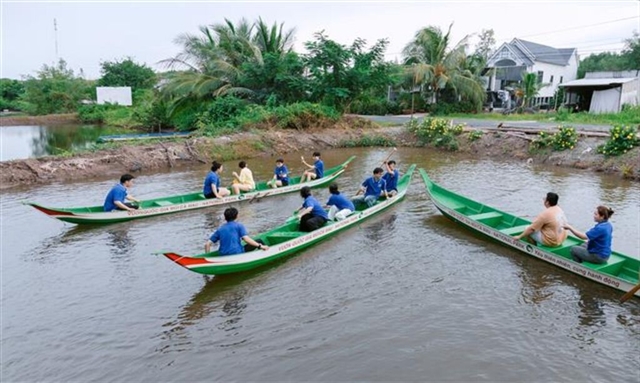 Politics & Law
Politics & Law

 |
| Emeritus Professor Roberto Rabel. VNA/VNS Photo |
SYDNEY – New Zealand Prime Minister Christopher Luxon will discuss New Zealand-Việt Nam relations and enhanced trade and investment prospects as well as exchanging views on a range of challenges confronting both countries in navigating the changing geo-political environment in the Indo-Pacific region during his official visit to Việt Nam from February 25 to 28, according to a professor.
In an interview granted to the Vietnam News Agency on the threshold of the trip, Emeritus Professor Roberto Rabel from the Centre for Strategic Studies under New Zealand’s Victoria University of Wellington said that Luxon’s first visit to Việt Nam as New Zealand Prime Minister is significant in providing him with the opportunity to see at first hand the vibrant socio-economic environment that has characterised Việt Nam’s development in recent years.
Regarding the bilateral relationship, the professor said that since formalising the strategic partnership in 2020, it has seen continued and steady growth, stressing that bilateral trade has increased by over 40 per cent over the last five years, and political relations and interactions in multilateral settings, such as the Comprehensive and Progressive Agreement for Trans-Pacific Partnership (CPTPP), have also been positive.
However, there is scope to raise the profile of the strategic partnership and to take it to a new level by devising concrete projects that will bring together government, private sector and civil society actors in both countries, he noted.
“The bilateral relationship is in good shape but there is potential for even wider and deeper cooperation,” said Roberto Rabel. In the area of international education, for instance, New Zealand offers excellent study options and diverse training opportunities, which could be taken up by more Vietnamese students and young Vietnamese public servants, while there should be more programmes to support young New Zealanders to travel, work and conduct research in Việt Nam.
In the context of Việt Nam and New Zealand celebrating 50 years of establishing diplomatic relations this year, the expert assessed that the current positive bilateral relationship offers a sound foundation for moving to a Comprehensive Strategic Partnership.
However, leaders in both countries must agree on and then pursue a set of concrete steps to provide adequate resourcing to enable a Comprehensive Strategic Partnership to thrive at all levels, based on enhanced links across government, the private sector and civil society in both countries.
Drafting and implementing a practical plan to achieve these goals within the Comprehensive Strategic Partnership framework will be an ideal way of marking the 50th anniversary of bilateral diplomatic relations.
Commenting on Luxon’s attendance at the upcoming ASEAN Future Forum in Hà Nội, Roberto Rabel affirmed that New Zealand has long been an active supporter of and participant in ASEAN-led regional architecture, with a strong appreciation for the value of “ASEAN centrality”.
In a regional geo-political environment that is characterised by growing great power competition, it is imperative for New Zealand to work with ASEAN as a grouping and with its diverse member states to help sustain the harmony and stability that has made possible the mutual prosperity that the shared region has experienced since the end of the Cold War.
In this context, New Zealand and Việt Nam can do much to work together bilaterally and with other small and middle powers to ensure that rules-based approaches prevail in the region, so that complex issues such as competing claims in the East Sea are resolved peacefully and within the framework of international law, he added. VNS




